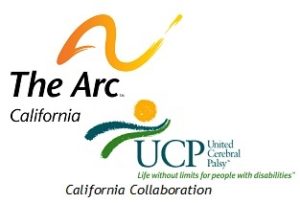Adults with Intellectual and Developmental Disabilities are routinely denied their right to vote. The Federal Voting Rights Act gives states the authority to enact laws to deny people the right to vote by reason of “criminal conviction or mental incapacity”. The California Constitution does limit voting based on the federal criteria which has historically led to an undue denial of the right to vote for many people with I/DD who are under conservatorship. The state has defined mental incapacity in a manner that is not particularly reflective of what we know about people with I/DD today. Click
For example, among the criteria to determine capacity is the ability to reason using abstract concepts, the ability to reason logically or the ability to plan, organize and carry out actions in one’s own rational self-interest or ability to attend and concentrate. There are several other criteria listed as well and the law states that there only need be a deficit in “at least one“. It goes without saying that there are many people with I/DD who are fully capable of understanding who they want to vote for while at the same time exhibiting a deficit in one or more of the defining criteria. We know that a person with cerebral palsy who uses eye gaze technology, but perhaps is under conservatorship for support with medical and financial decision making, could and should be able to vote but by the nature of their disability they would easily be considered deficient in one or more of the defining criteria.
Without a doubt there are reasons why caution should be used to protect the democratic process and guard against voter fraud and vulnerability. The potential to exploit people with I/DD and the voting process is there and a genuine concern so laws protecting that process are definitely warranted. However, in protecting that process we cannot take away the rights of thousands of people who are capable of voting. Thus, it is essential that state laws narrow the grounds on which they deny the right to vote to those who are truly unable to understand the nature of what they are doing when they are voting. Thankfully, California heard the call of thousands of people and in October 2016, Governor Jerry Brown signed into law SB 589 Voting: Voter Registration: Individuals with Disabilities and Conservatees which changed the law to allow individuals with disabilities under conservatorship to retain their right to vote unless it is shown by clear and convincing evidence that the individual cannot communicate, with or without reasonable accommodations, a desire to participate in the voting process. This was a critical piece of legislation to improve the protections of adults with I/DD to maintain their voting rights in California.
To learn more about how to get voting rights restored for and individual under conservatorship click here.


Teresa Anderson, Policy Director, The Arc & UCP California Collaboration

